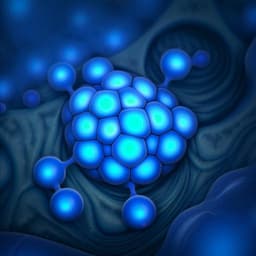
Chemistry
Porous carbon nanowire array for surface-enhanced Raman spectroscopy
N. Chen, T. Xiao, et al.
Discover the revolutionary porous carbon nanowire array (PCNA) that enhances Raman spectroscopy, making it a game-changer in biomedical applications. This innovative, metal-free substrate tackles issues of reproducibility, biocompatibility, and durability, achieving signal enhancements of up to ~10⁶. Explore the findings of this groundbreaking research conducted by the team of authors from The University of Tokyo and other institutions.
Related Publications
Explore these studies to deepen your understanding of the subject.







